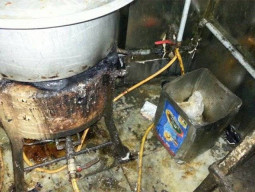
At a seminar on the devolution of power organised as a part of Karachi University’s international conference on federalism, academics argued that the country’s political landscape is more complex than most people believe and that local government systems turn a blind eye towards the aspirations of some groups.
Dr Aasim Sajjad Akhtar from Quaid-e-Azam University, Islamabad, highlighted the historical tension between local government systems and the provinces in Pakistan. “Unfortunately, almost all of the local government system experiments in the country have been conducted under military regimes. They have been used to legitimise fundamentally undemocratic rules.” Through these pliant local regimes, the authoritarian regimes at the centre bypassed the provincial governments altogether, protecting themselves from any challenges. Dr Akhtar claimed that in doing so, local government systems had actually hindered any real devolution of power to provinces in Pakistan and aggravated ethno-national movements.
SPLGA 2012
“Historically, local government systems have been used as a means to co-opt the middle and lower classes. But at the same time, they have ignored the demand of certain ethnic groups and alienated them,” said Dr Akhtar. “The democratic material was removed from local government systems and they were simply converted into instruments to distribute patronage.” Because the systems have been so apolitical, ethnic groups have viewed them with great suspicion. The spate of protests that nationalists organised against the Sindh Peoples Government Act (SPLGA) is the most recent manifestation of this.
Dr Akhtar also lamented the fact that people fail to recognise the numerous claimants to power in Pakistan - the SPLGA is the result of negotiation between only two groups and hence cannot claim to accommodate the needs of other ones in Sindh. “In military regimes, leaders co-opt only the groups they want to. But [with the SPLGA] we are still seeing various claimants to power, saying that they have been left out. This points out that we are simply ignoring the numerous divisions that exist in Pakistan.”
He added that the only solution to the problem was to prevent authoritarian rule from derailing the political process. “Though this is an obvious point, it still needs to be repeated from time to time because the urban middle class is simply not interested in politics. They have a problem with it because it is messy, complicated and produces leaders which they simply do not like,” he said. “This is a real problem because members of the middle-class who sit in the media and schools are the ones who make public opinion.”
Meahwhile in Sri Lanka...
Dr Jehan Perera, the executive director of the National Peace Council of Sri Lanka, said that though the Liberation Tigers of Tamil Eelam - the most threatening separatist group in the country - had been defeated over three years ago, uneasy and “negative” peace now prevails there. The country had witnessed terrible conflict for over 30 years where members from the Tamil minority violently tried to carve out their own country in the northern part of Sri Lanka, where the Sinhalese comprise nearly 75 per cent of the population. The Tamils, about 15 per cent of the population, mostly live in the north of the country while Muslims form 10 per cent of the population and live in the eastern parts.
Though the bloody tussle between the LTTE and Sinhalese has ended, all is not well. Through a recent amendment to the constitution, Sri Lanka’s centre was trying to wrench all power back from the provincial councils. “Given their majority, Sinhalese form the government. All the top leaders are Sinhalese. Because of this, the ethnic minorities fear that the tyranny of the majority.” Yet in the country, there is no popular support for the devolution of power because like their Pakistani counterparts, the ruling elite in Sri Lanka feel that it will lead to the fragmentation of the country.
Published in The Express Tribune, November 8th, 2012.
COMMENTS (7)
Comments are moderated and generally will be posted if they are on-topic and not abusive.
For more information, please see our Comments FAQ

















@ Hameedullah, Census doesnt determine the support base of a party, elections does. and MQM has won convincingly last elections on seats from Karachi. There was no ethnic tension in Sindh during the whole tenure of MQMs mayor Mustafa KAmal, or MQMs Home Minister. MK worked for every constituency in the city, for which he was respected also by every community in Karachi, it is your supported PPP and Sindh Separatists who fuel ethnic tensions in the province so that they can earn the bread and butter, because its the only justification they have left for getting elected, (since they are mentally incapable of serving the people themselves). About you comment on 5 districts, A single city divided into multiple zone with no co-ordination will result in a chaos. You my friend need to understand the basics of Local Govt. If mqm has support from just 20% of the city, then 80% of the union concils of the city should have been dominated by other party , resulting in the final Mayor being elected by 80% of non MQM voters. Sadly for you this isnt the case MQM has convincing support from the whole city, and theres nothing you can do about it except whine over it.
@Hameedullah...Why don't you prove that the new SPLGA favors only MQM. Point out the exact clause. Also what do you mean by "1998 Census shows that MQM has majority only in two districts"? Where exactly in census do they account for the poltical parties. Secondly I know many non-urdu speakers who support MQM more than any other party especially after previous Local govt.. Instead of just making issue out of nothing start using your head. If you cannot prove where and which clause of SPLGA favor MQM then be quiet. Every where in the world, big cities follow different laws then small cities and villages. If you think that every city of Sind should have same local govt. then go and ask your useless politicians who want to keep power in their hand with the commissionerate system.
Come out of your hatred of MQM and short sightedness. When things improve in Karachi it is good for everyone not only MQM supporter. Why don't you question the politicians who did nothing to improve other cities of Sind, even on expense of Karachi's development? It is easy to blame and complain but do nothing. Sind is backward and suffering not because of MQM but the idiots, ppl of rural Sind has always elected or favored.
@Sindhi_Pakistani: As part of a survey team, we conducted a medium scale survey on Local Govt System all over Pakistan back in 2006-2007. we conducted interviews of local government bureaucracy and elected representatives (DCOs, EDOs and District/Tehsil/Town/Union Nazims). In Sindh, we covered Mirpur Khas, Shikarpur and Nawabshah.
Our core finding is that, despite a number of issues including financial constraints, human resource, political divide etc., this system could really flourish if improvements are done in a timely manner.
[Report can be viewed Here...]
Alas, this system was thrown away only because it was curbing the powers of MPAs and MNAs.
@Sindhi_Pakistani No, what bugs you is that your supported political candidates dont get vote in Karachi, and you want to rule Karachi despite the fact that you are minority there, either accept democracy in its pure form, or go for pure dictator ship and ban Non Sindhis from Karachi so that you can take "your born right" to rule Karachi. Send 5 million Punjabis back to Punjab, 5 million Pukhtuns and Afghans back to their land, and through the so called "non Son of Soils" that are: UPs, Biharis, Dehlvis, Memons and others to sea. Only then will be satisfied. And why stop there, why not kick the remaining out too and resurrect the Dinosaurs, bring them back to life, as by the true definition they were here first, and they deserve to rule!!
Local Govt is important tier for good governance. Sindhis are not against Local Govt system but we are against SPLG Bill 2012, because it doesn't address our core issues related to our fundamental rights over our land, cities and resources. It created states within state. This system was brought by PPP as a bargain chip to appease MQM. People of Sindh will not accept this bill or any other bill which doesnt guarantee protection of their rights.